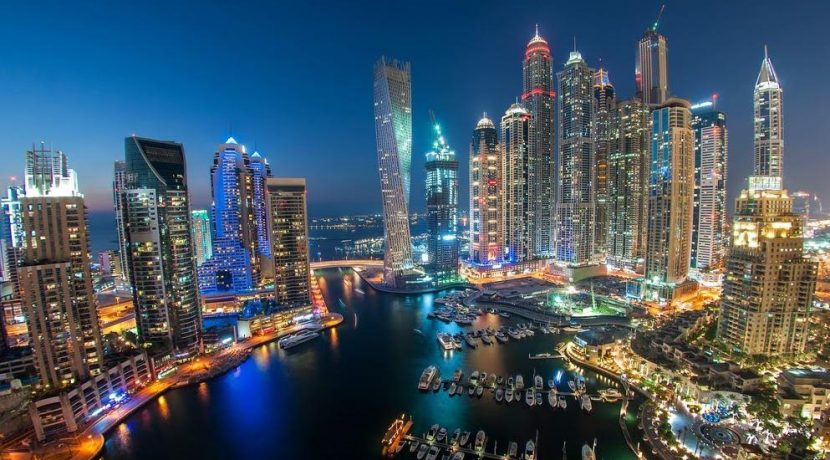Landlords in Dubailand communities more likely to offer four cheques — and even more
Dubai: Tenants needn’t stick with single-cheque rent payments if they don’t feel like it.
More residential options are opening up across the city that allow rents to be split over four cheques … and even more.
In August, 88 per cent of lease contracts entered into at Damac Hills (formerly known as the Akoya) were tied to four cheques, and followed by the homes at Jumeirah Village Circle, where 79 per cent of leases inked had this facility.
Sixty-seven per cent of Motor City signings during the period had a similar payment structure, as did 46 per cent in Arabian Ranches and 33 per cent in Sports City, according to the database from Property Monitor, a Cavendish Maxwell venture.
Trend spreading
And the trend of multiple cheques is spreading as Dubai’s landlords believe this is an incentive that potential tenants are more than likely to be attracted to.
Plus, of course, the actual rental value.
“Forty per cent of rental contracts agreed to in July were with one cheque whereas 43 per cent were with four cheques,” said Lynette Abad, Head of Property Monitor.
“If we compare this to July 2016, 66 per cent of agreed rental contracts were with one cheque and only 4 per cent were had four cheques. If we drill down further, we are seeing the majority of rental contracts — 90 per cent plus — negotiated in four cheques or more in Layan, Falcon City of Wonders and Al Waha.
“We are seeing the market shift to four cheques being the norm over one cheque and — as more supply hits the market — this trend will probably continue increasing the number of cheques to six or even 12 in the upcoming years.”
Property Monitor bases these findings from the rental contract data supplied by leading estate agencies in Dubai.
12 cheques
The consultancy says that the Layan community in Dubailand did see instances of the landlord allowing 12-cheque payments.
The last time mentions of 12-cheque rental payments happened was in the immediate aftermath of the 2009 financial crisis.
And a few landlords did even experiment with it as Dubai’s property market went into a crisis.
There was also significant new supply of homes that got delivered in 2007 and 2008 and were suddenly bereft of tenants. During the crisis years, landlords were taking all sorts of action to reduce the chances of their properties remaining empty for a long stretch.
This time out the market situation is quite different, but Dubai’s realty should still see a high proportion of handovers this year and all the way up to 2020.
Individual property owners wanting to see a return on investment cannot be seen as sitting around demanding a high rental and without generous payment schemes.
And the pressure will be even more intense on landlords with newly delivered homes in the city’s emerging freehold clusters.
“The pendulum has certainly shifted from a landlord-driven market to a renter’s,” said Abad. “With new supply causing rental prices to drop, tenants have the power to negotiate on pricing and in number of cheques.
“We have seen this across all areas in Dubai, especially in the suburbs where new supply has been released. It started to gain traction in Q1-17, which correlates to the new supply released into the market. We have seen this with both individual- and company-owned properties in freehold and leasehold areas.
“We are also seeing a trend over the past year where landlords are offering rent-free months, zero commissions and free air-conditioning (to add to the) flexible payment plans. Individual landlords are more prone to offer multiple cheques whereas company-owned are more inclined to give incentives such as rent-free month, include air-conditioning fees in rent, and waive fees.”
Off-plan sales will remain the pacesetter in Dubai realty
* Demand for off-plan property could end the year at around 25,000 units, according to Cavendish Maxwell estimates. “With Cityscape Global coming up, we expect developers launching further projects at the event with attractive payment plans,” said Lynette Abad, Head of Property Monitor. “The total number of off-plan transactions year-to-date in 2017 has already surpassed the corresponding number for the whole of 2016. As Q4 is creeping closer, and a traditionally busy time for transactions in the market, we can assume that that this trend will continue until the end of the year.”
* If we look at overall transfers in 2017 (secondary and off-plan), 71 per cent have been above Dh1,000 a square foot, Cavendish Maxwell data finds. Specifically, in the secondary market, 65 per cent are above Dh1,000 a square foot whereas off-plan units charge a higher price per square foot as 74 per cent are above Dh1,000.”
All rights reserved to the initial publisher for Gulf news.
Collected and published by Arms &McGregor International Realty® editorial team. Get in touched with us at [email protected]

